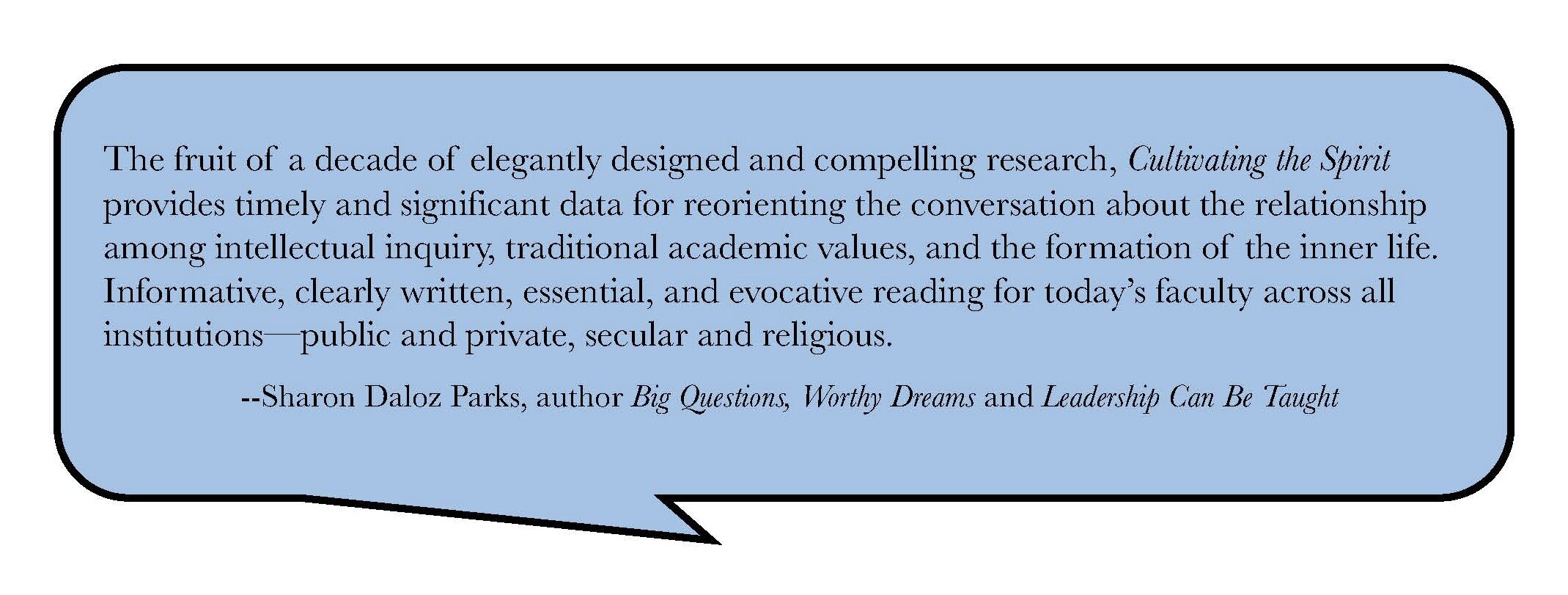The study reported in this book surveyed (in 2004) more than 112,000 freshmen as they enrolled in 236 public and private (religiously affiliated and non-religiously affiliated) colleges and universities, and then followed up (in 2007) 14,527 of these students (at 136 institutions) as they were completing their junior year. The faculty in these colleges were surveyed as well, and personal interviews with selected students and their professors were also conducted.
We define "spiritual development" very broadly: how students make meaning of their education and their lives, how they develop a sense of purpose, the value and belief dilemmas that they experience, as well as the role of religion, the sacred, and the mystical in their lives.
Findings show that religious engagement among students declines somewhat during college, but their spirituality shows substantial growth. Students become more caring, more tolerant, more connected with others, and more actively engaged in a spiritual quest. The authors also found that spiritual growth enhances other outcomes, such as academic performance, psychological well-being, leadership development, and satisfaction with college.The study also identified a number of college activities that contribute to students' spiritual growth. Some of these--study abroad, interdisciplinary studies, and service learning--appear to be effective because they expose students to new and diverse people, cultures, and ideas. Spiritual development is also enhanced if students engage in "inner work" through activities such as meditation or self-reflection, or if their professors actively encourage them to explore questions of meaning and purpose. Spiritual development is impeded when students engage in activities that distract them from the ordinary experience of campus life--activities such as watching television and playing video games.
By raising public awareness of the important role that spirituality plays in student learning and development, by alerting academic administrators, faculty, and curriculum committees to the importance of spiritual development, and by identifying possible strategies for enhancing that development, this work encourages institutions to give greater priority to these spiritual aspects of students' educational and professional development.
Published by Jossey-Bass, 2011; Hardcover 224 pages
ISBN 978-0-470-76933-1




